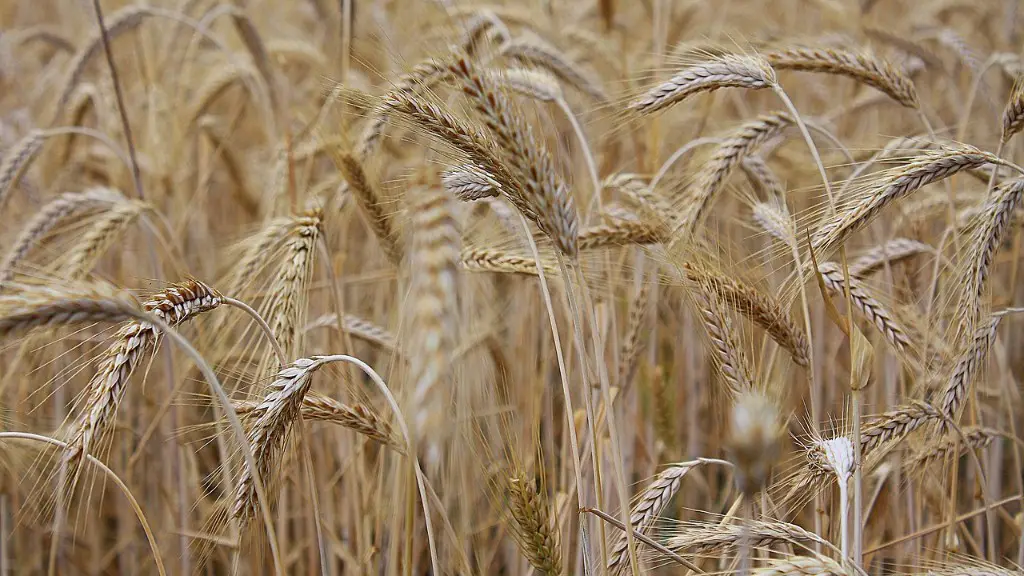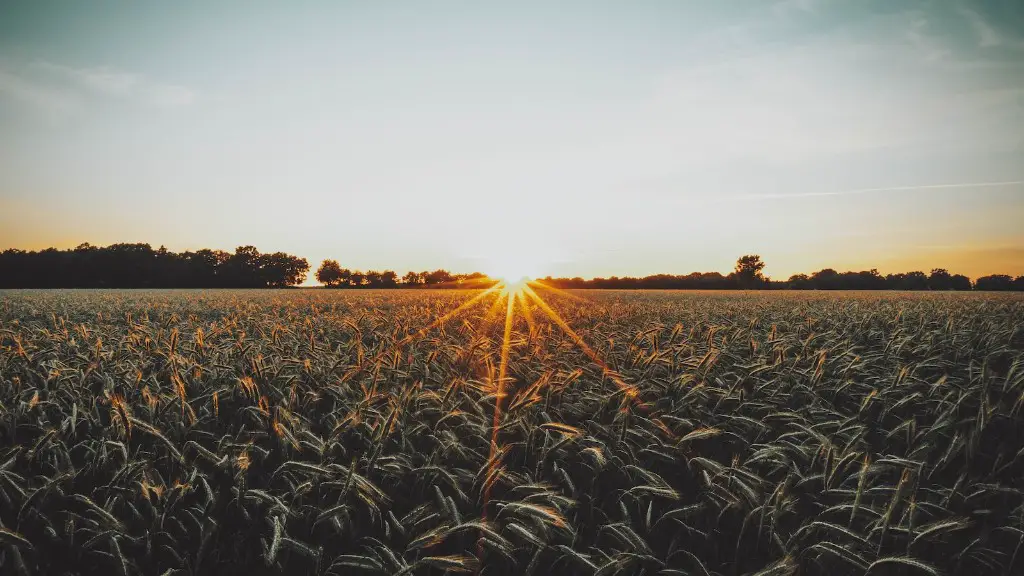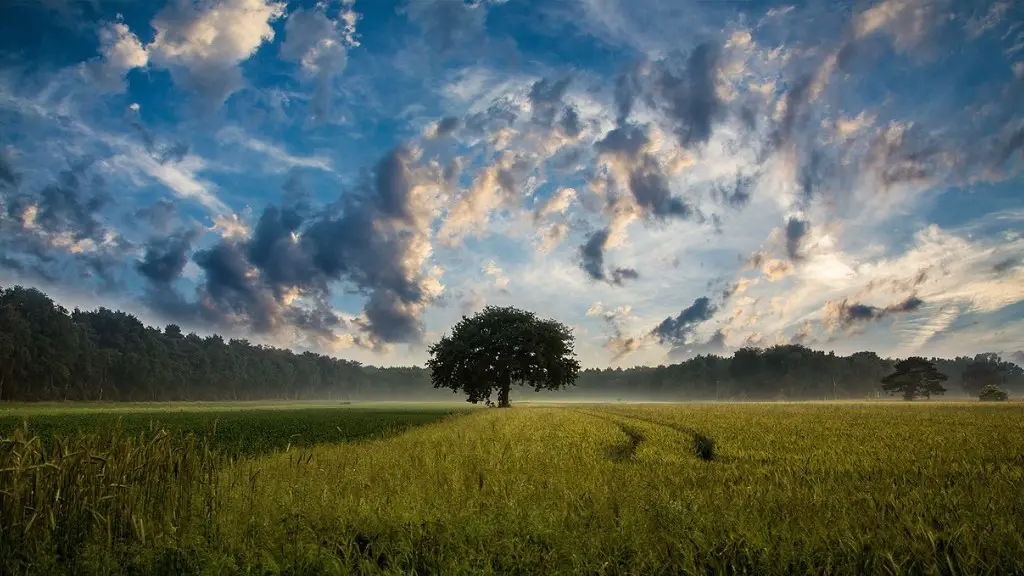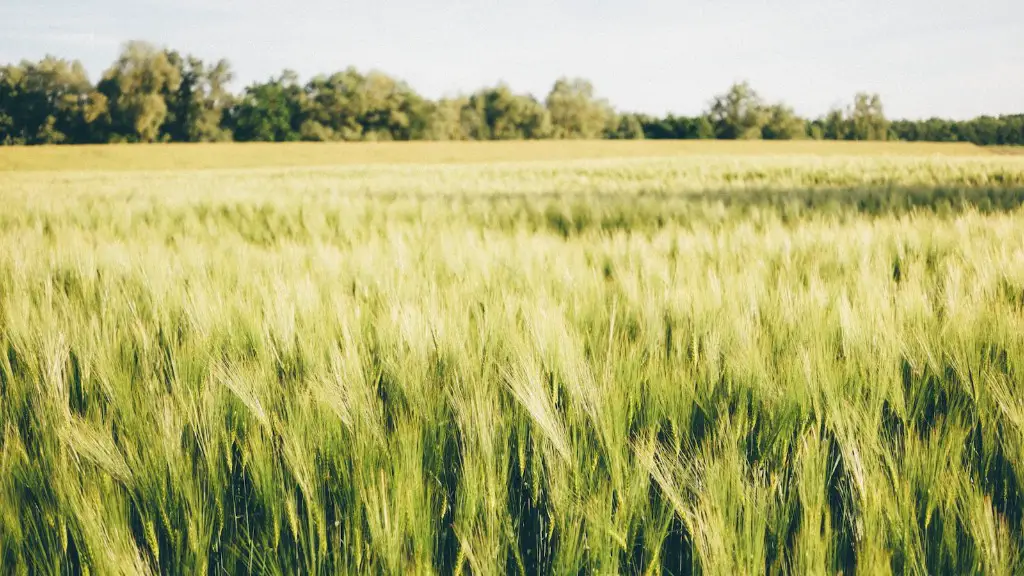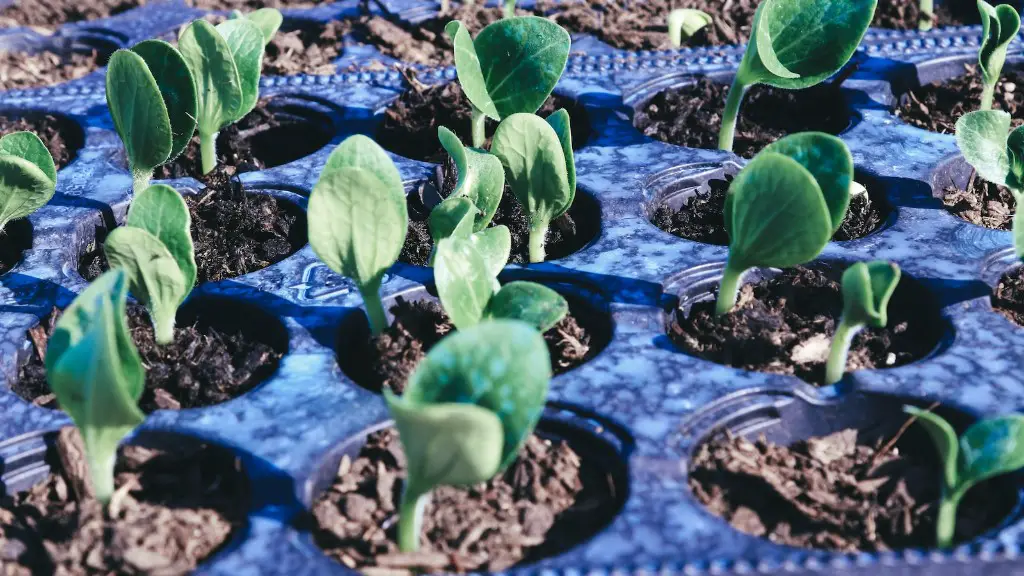Agriculture is one of the most important aspects of human civilization. It is the process of growing crops and raising livestock for food, fiber, and other products. Agriculture has been around for thousands of years, and it is the foundation of many modern societies. It is responsible for the food we eat, the clothes we wear, and the fuel we use. Agriculture is also a major source of employment and economic activity. In developed countries, agriculture accounts for a small percentage of the economy, but in developing countries, it can be the main source of income.
Agriculture is important for a variety of reasons. It is a key source of food and other products for humans and animals, it helps to maintain the Earth’s ecosystems, and it drives economic activity.
Why was agriculture so important to humans?
Agriculture is one of the most important inventions of humankind. It enables us to grow all the food we need in one place, with a much smaller group of people. This led to massive population growth, creating cities and trade. Agriculture has been a key driver of human progress for millennia.
The agriculture industry is responsible for the world’s food supply. It is the most important aspect of the agriculture industry. Agriculture is responsible for everything from harvesting crops to raising livestock. The agriculture industry meets the daily food needs of vegetarians and carnivores alike.
What are 5 important of agriculture
Agriculture is the backbone of many economies, providing food, jobs, and income. It is also a major source of environmental services, such as clean water and air, and contributes to climate change mitigation and adaptation. Despite its importance, agriculture is often undervalued and underfunded.
There are many reasons why agriculture is important:
1. Agriculture provides food for the world.
2. Agriculture is a major source of employment.
3. Agriculture contributes to economic growth and development.
4. Agriculture helps to protect the environment.
5. Agriculture can help to mitigate and adapt to climate change.
Despite its importance, agriculture is often undervalued and underfunded. This is often due to a lack of understanding of its importance, or a belief that it is not a “sexy” industry. However, without agriculture, the world would not be able to function. It is essential to the food supply, the economy, and the environment.
Farming is a great way to get some exercise and fresh air while also being productive. It can be challenging and stimulating work, providing a source of income in rural areas. Farm work also helps to develop younger generations, teaching them important skills while also helping the environment thrive.
Why is agriculture important in economy?
Agriculture is a vital sector of the economy and plays a major role in economic growth and development. As the provider of food, it is a cornerstone of human existence. As a furnisher of industrial raw materials, it is an important contributor to economic activity in other sectors of the economy.
Agriculture is a major employer in many countries and is an important source of income for many households. In addition to its direct economic contribution, agriculture also provides numerous indirect benefits to the economy. For example, agriculture helps to conserve natural resources, provides environmental benefits, and contributes to the tourism sector.
Despite its importance, agriculture faces many challenges. These include the effects of climate change, the loss of productive agricultural land, declining productivity, and the spread of pests and diseases. However, with the right policies and investments in place, agriculture can continue to be a major driver of economic growth and development.
While negative impacts of agriculture on the environment are serious, there are also positive impacts that result from certain farming practices. For instance, agriculture can trap greenhouse gases within crops and soils, or mitigate flood risks. These positive impacts highlight the importance of sustainable agriculture in order to protect the environment.
How does agriculture benefit society?
Agriculture is essential to human life. It provides food, clothing, and shelter. It helps people to enjoy a higher quality of life. Agriculture is a vital part of the economy and it plays a key role in providing food security.
Agricultural practices that help boost soil fertility include crop rotation, using cover crops, and applying organic matter to the soil. These practices help to prevent the exhaustion of soils, and increase the biodiversity of favorable soil fauna and flora. This, in turn, helps to secure stable yields.
How did agriculture change human society
More abundant food supplies could support denser populations, and farming tied people to their land. Small settlements grew into towns, and towns grew into cities. Agriculture produced enough food that people became free to pursue interests other than worrying about what they were going to eat that day. This led to the development of civilizations, and the rise of great cultures and empires.
Agriculture is a leading cause of many environmental problems, including soil erosion, water pollution, climate change, and deforestation. While it is possible to produce food without damaging the environment, current farming practices often have negative impacts. In order to protect the environment, we need to find ways to make agriculture more sustainable.
How does agriculture impact daily life?
Agriculture plays an important role in society by providing food, habitat, and jobs. It also provides raw materials for food and other products. Agriculture can help build strong economies through trade.
Agriculture has brought about important changes for humanity. For one, it has allowed us to settle down in one place instead of being nomadic. This has allowed us to grow our own food, which has been a huge boon for our species. Additionally, it has allowed us to develop civilizations and cultures that wouldn’t have been possible otherwise.
How does agriculture change people’s lives
When early humans began farming, they were able to produce enough food that they no longer had to migrate to their food source. This meant they could build permanent structures, and develop villages, towns, and eventually even cities. Closely connected to the rise of settled societies was an increase in population.
There are a number of ways to increase profitable farm income while promoting environmental stewardship and enhancing quality of life for farm families and communities. One way is to increase production for human food and fiber needs. This can be done by increasing the yield of crops and/or by diversifying into new crops that are in demand. Another way to increase farm income is to add value to the products that are produced. This can be done by processing raw materials into finished goods, or by providing services related to the farm products. Finally, farm income can be increased by reducing costs. This can be done by increasing efficiency, using new technologies, or by bargaining for better prices for inputs.
Why is it better to live in agricultural society?
People who live in agricultural societies typically lead a more settled lifestyle than those who live in nomadic hunter-gatherer or semi-nomadic pastoral societies. This is because they permanently live near the land that is being farmed, as opposed to constantly moving around to find new sources of food. While a settled lifestyle can have its benefits, it can also be more difficult to adjust to new situations and environments.
Sustainable agriculture has a significant role to play in feeding the growing worldwide population and reducing the impact of climate change. Today, agriculture accounts for up to 30% of the world’s greenhouse gas emissions, according to the World Bank. To meet the demand for food while reducing emissions, we need to adopt sustainable agricultural practices that help to:
– Improve soil health
– Increase crop productivity
– Reduce inputs (such as water, fertilizer, and energy)
– Optimize land use
Sustainable agriculture not only benefits the environment, but also improves the lives of farmers and the food security of communities. It is an important part of the solution to the climate crisis.
Conclusion
Agriculture is important because it is the primary source of food for humans and animals. Agriculture is also responsible for the production of other goods like clothing and shelter. Agriculture is a vital part of the global economy.
Agriculture is important because it is the primary source of food for humans and animals. Agriculture also provides other important products, such as clothing and shelter. Without agriculture, humanity would not be able to survive.
